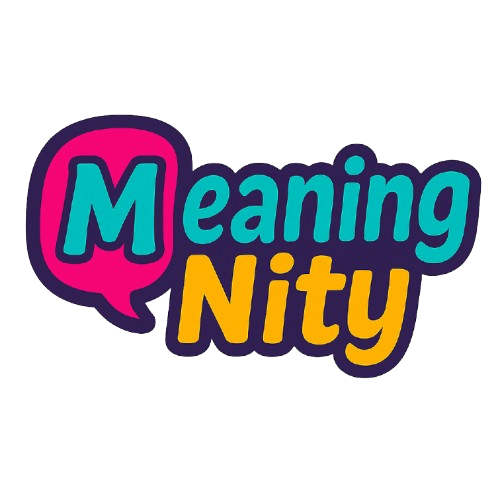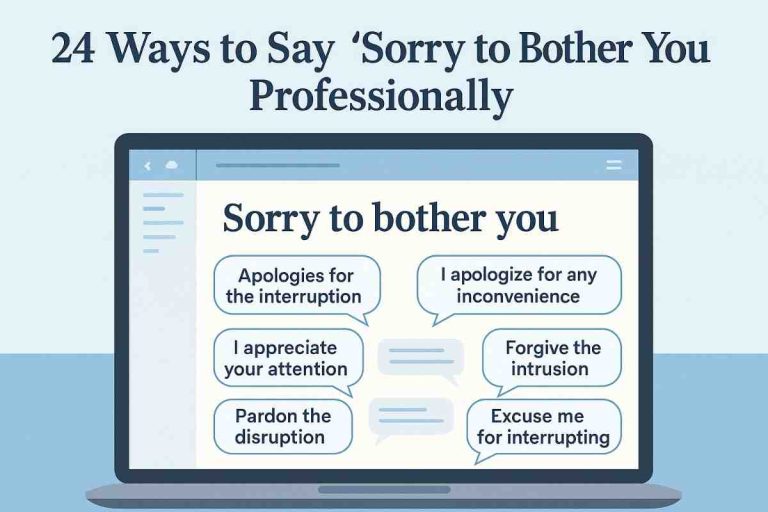25 Ways to Say “Thank You for Your Concern” Professionally
Sometimes, people express worry or care in the workplace—whether it’s about a personal matter, a delay, or a tough project. Saying “Thank you for your concern” is polite, but it can get repetitive or feel a bit formal. That’s where variety helps.
Below are 25 professional ways to express appreciation when someone shows concern. Each phrase includes a sample and a note on when to use it. Use them in meetings, emails, or chats—wherever courtesy matters.

When “Thank You for Your Concern” Is the Right Response
This phrase works best when someone:
- Checks in on your health or stress levels
- Acknowledges a mistake or delay with empathy
- Offers support during a difficult time
- Expresses worry over a project or issue

Below 25 Ways to Say “Thank You for Your Concern”
1. “I appreciate your thoughtfulness.”
Example: “I appreciate your thoughtfulness—it means a lot.”
Best Use Case: When someone checks in on your well-being.
2. “Thank you for reaching out.”
Example: “Thank you for reaching out and checking in on me.”
Best Use Case: In reply to messages or emails offering support.
3. “Your support means a lot.”
Example: “I just wanted to say—your support means a lot.”
Best Use Case: When someone offers emotional or professional backing.
4. “I truly value your concern.”
Example: “I truly value your concern during this time.”
Best Use Case: For more personal or serious situations.
5. “Thanks for keeping me in mind.”
Example: “Thanks for keeping me in mind—it helps more than you know.”
Best Use Case: In response to subtle or quiet check-ins.
6. “It’s comforting to know you care.”
Example: “It’s comforting to know you care—thank you.”
Best Use Case: When someone notices signs of stress or fatigue.
7. “Grateful for your kindness.”
Example: “I’m truly grateful for your kindness.”
Best Use Case: When someone goes out of their way to help or ask.
8. “I appreciate your sensitivity.”
Example: “I appreciate your sensitivity to the situation.”
Best Use Case: When someone speaks with care or restraint.
9. “Your thoughtfulness didn’t go unnoticed.”
Example: “Your thoughtfulness didn’t go unnoticed—thank you.”
Best Use Case: In situations where actions speak louder than words.
10. “Thank you for your empathy.”
Example: “Thank you for your empathy—it’s appreciated.”
Best Use Case: After someone responds with emotional understanding.
11. “I’m touched by your concern.”
Example: “I’m touched by your concern—thank you for checking in.”
Best Use Case: For heartfelt or unexpected support.
12. “It’s great to have your support.”
Example: “It’s great to have your support on this.”
Best Use Case: When the concern is tied to a team or shared task.
13. “Thank you for your thoughtfulness.”
Example: “Thank you for your thoughtfulness and kind words.”
Best Use Case: For messages that come with kind gestures.
14. “Your words are appreciated.”
Example: “Your words are appreciated—thank you for them.”
Best Use Case: After receiving thoughtful or encouraging feedback.
15. “I’m grateful for your attention to this.”
Example: “I’m grateful for your attention to this matter.”
Best Use Case: When concern relates to a project or issue.
16. “That was very thoughtful of you.”
Example: “That was very thoughtful of you—thank you.”
Best Use Case: For small acts that show care or awareness.
17. “Thanks for thinking of me.”
Example: “Thanks for thinking of me—it was a nice surprise.”
Best Use Case: After an unexpected message or note.
18. “Appreciate your awareness.”
Example: “Appreciate your awareness of the situation.”
Best Use Case: When someone shows concern for workplace dynamics.
19. “Your care means a great deal.”
Example: “Your care means a great deal—thank you.”
Best Use Case: For more emotional or personal moments.
20. “Thanks for your thoughtful message.”
Example: “Thanks for your thoughtful message—it made my day.”
Best Use Case: Responding to supportive emails or notes.
21. “I appreciate you checking in.”
Example: “I appreciate you checking in—it really helped.”
Best Use Case: When someone follows up during a tough time.
22. “Thank you for being so considerate.”
Example: “Thank you for being so considerate about this.”
Best Use Case: For coworkers who handle things with care.
23. “Thanks for your understanding.”
Example: “Thanks for your understanding while I sort this out.”
Best Use Case: When someone shows patience or grace.
24. “I value your kind attention.”
Example: “I value your kind attention to this issue.”
Best Use Case: A more formal phrase, great for senior contacts.
25. “It means a lot to know you care.”
Example: “It means a lot to know you care—thank you.”
Best Use Case: Honest response to genuine concern.
Conclusion
Acknowledging someone’s concern isn’t just polite—it builds trust. Whether in a quick chat or a formal email, how you say “thank you” shapes how others feel about their efforts. A well-chosen phrase can show both professionalism and heart. So next time someone shows they care, you’ve got 25 better ways to say “thank you for your concern.” Use the one that fits your voice—and the moment.







